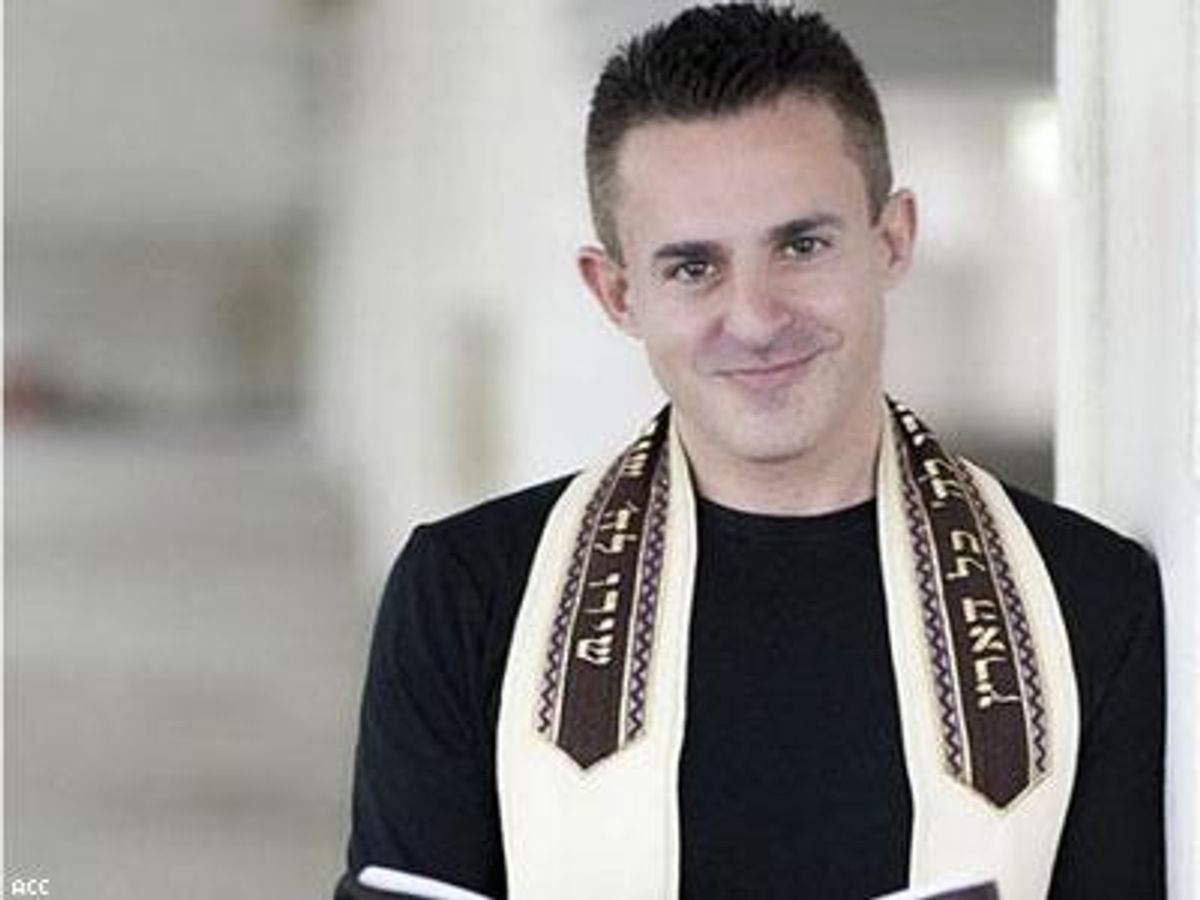
A devoted Jewish cantor found solace in the same religion he felt slighted by as a young gay man.
September 16 2013 4:00 AM EST
November 17 2015 5:28 AM EST
By continuing to use our site, you agree to our Private Policy and Terms of Use.

I remember growing up in the caring Orthodox Jewish community of northwest London. I can't remember a time when I didn't want to be a cantor, the lead voice and clergy member of a synagogue. I used to strategize the precise time and route I would take on my weekly walks to shul so that I'd "accidentally" bump into my idol, the cantor of my synagogue. I became friends with his sons so I could spend time in the cantor's home, singing, learning, and experiencing Judaism right from the source.
However, when I heard the cantor laugh at a gay character on TV, I was devastated. By the time of my bar mitzvah, I realized that all was not well in my world. The all-boys Jewish high school I attended made its stance on homosexuality clear -- it was wrong. Words like "abhorrent," "disgusting," and "repugnant" were used to describe homosexuality by the same rabbis I had looked up to.
During a gap year between high school and university, I attended an Orthodox yeshiva (where students study sacred texts) in the heart of Jerusalem. I heard shocking remarks and jokes about homosexuality, often from the same teachers who preached tolerance and love of humanity. On the other hand, flirtatious homosexual behavior and activity were commonplace at the school.
One incident that sticks out in my mind was the reaction of our head rabbi following the Challenger space shuttle disaster of 1986. He informed us that the disaster was God's way of punishing mankind, who falsely believed it had attained dominion over the sky as well as the land. Our group of 19- and 20-year-old students simply nodded our heads in agreement.
What feels like a lifetime later, I'm reminded of my experiences growing up in a religious, right-wing community, as I am now both a member of the Reform Jewish community and of the LGBT community. All too often, LGBT people have similar negative childhood experiences within their own faith. "Religion" is almost a dirty word, perhaps defining one as a self-hater or, just as bad, a mindless philistine who believes in ridiculously implausible fairy tales.
Reform Judaism is the antithesis of fundamental religious belief. With an emphasis on tikkun olam, or "making the world a better place" through acts of love and kindness, as well as its strong and long-standing support of LGBT initiatives, Reform Judaism has defined itself as inclusive, embracing of all, and forward-thinking.
We believe that all of us are created bselem elohim, or in the image of God. All of us bring our unique talents and perspectives to create tikkun olam.
At a time when many of our community members are turning to alcohol, drugs, and other sources of temporary gratification, I believe it's time to embrace religion as a meaningful and helpful source of comfort and sense of well being.
MARK GOLDMAN is the newly chosen president of the American Conference of Cantors, the first gay person to hold the position. He is the cantor for Temple Kol Ami Emanu-El in Plantation, Fla.